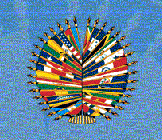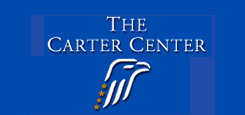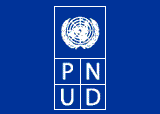Response by
Ambassador John F. Maisto, Permanent
Representative of the United States,
to charges made by the Delegation of Venezuela at
the Regular Session of the OAS Permanent Council
March 31, 2004
· Thank you, Mr. Chair. In view of the lateness of the hour and the fact that the newly arrived Peruvian ambassador gave such an inspiring address reminding us of what it was like to work from the opposition under an authoritarian regime, I regret that all delegations were subjected to such a long and intemperate outburst by the Permanent Representative of Venezuela, marked by all manner of irresponsible and untrue accusations, when we have such important work to do.
· I will be brief and respectful, but more importantly, I will be factual.
· This is not the first time we have heard irresponsible and untrue allegations, such as those about clandestine recordings, helicopters and warships moored off the coast, from the Government of Venezuela. They have come in a variety of forms, including vulgar personal insults against my President. They also have extended to this Organization itself, as demonstrated by Venezuela’s recent, unjust attacks on the independence of the Inter-American Commission on Human Rights.
· The Commission itself appropriately rejected these attacks, but all delegations should be concerned by Venezuela’s attempt to undermine the IACHR, particularly the remarks by the Venezuelan officials that parrot the criticisms of this Organization made by the most flagrant and vicious violator of human rights in this Hemisphere, the Cuban dictator, Fidel Castro.
· Frankly, when the government of Venezuela characterizes this Organization as “another ministry of the United States,” I’m not sure whom they’re attempting to provoke – just us, or all delegations.
· Mr. Chair, my government rejects this latest eruption from Venezuela. These irresponsible and baseless accusations are being made to distract the attention of the Permanent Council and international public opinion from what we all know is the real issue at stake in Venezuela - the need to resolve the political impasse in a manner that is constitutional, democratic, peaceful and electoral. It is a crude attempt to bi-lateralize an issue that concerns the entire international community: the state of democracy in Venezuela.
· The Government of Venezuela’s recent attack on one of its own judicial institutions, whose ruling was not to its liking, is indicative of the problem.
· OAS Permanent Council Resolution 833 makes clear the Hemisphere’s position on this issue, and I need not reiterate here the Council’s expectation that this mandate be fulfilled.
· I will not waste the Council’s time with a detailed response to the repeated absurdities coming from Venezuelan officials. My Government is proud to promote democracy and democratic institutions in the Hemisphere. In fact, Mr. Chair, my government supports efforts aimed at strengthening democracy and democratic institutions not only in Venezuela, but worldwide.
· Our efforts are fully consonant with the mandates of the Summits of the Americas. Most recently, in Monterrey, our heads of state and government recognized – and I quote – “that political pluralism and sound political parties are essential elements of democracy. We underscore the importance of rules to ensure transparency of party finances, to prevent corruption and the risk of undue influence, and to encourage a high level of electoral participation. Therefore, we will promote the conditions that enable political parties to thrive, autonomous of government control. We will encourage political training and leadership development, including for women, youth, indigenous people, members of ethnic groups, and marginalized segments of the population…”
· Our support for democracy comes in many forms, one of the most important being the National Endowment for Democracy (NED), a private, non-profit, bipartisan organization created by Congress in 1983 to strengthen democratic institutions worldwide through non-governmental efforts. Let me repeat, the NED is bipartisan, this means that its board includes people of both political parties in the U.S.; Republicans and Democrats. The NED makes hundreds of grants each year to support pro-democracy groups and activities in Africa, Asia, Central and Eastern Europe, the Middle East, the former Soviet Union, and in the Americas.
· The work of the NED is transparent and has been widely applauded for its successes in democracy-building. The U.S. Government, including the Congress, is proud to support these and other such efforts. The NED, a non-governmental organization that receives public money and is independent of the Executive Branch. This means that its work is not controlled by the State Department or any other part of the Executive Branch. The NED has been active since its inception in promoting democracy in Argentina, Chile, Cuba, the Dominican Republic, Guatemala, Mexico, Nicaragua, Panama, Paraguay, Peru, and Venezuela, to name only a few countries.
· NED’s efforts have been lauded by such champions of freedom as Vaclav Havel, His Holiness the Dalai Lama, Corazon Aquino, as well as leaders from this Hemisphere.
· But the work of the NED has not been universally praised. I quote:
“Por otra parte, está el agresor externo que, por revanchismo o desinformación, pretende ayudar a los que venden su patria, y para ello gasta millones de dólares en una inaceptable intromisión que nuestro pueblo, estoy seguro, rechaza de pleno.”
· Mr. Chair, this was the reaction of Chilean dictator Augusto Pinochet on January 2, 1988, to an announcement that the United States Congress had approved funding to the National Endowment for Democracy to support a peaceful transition to democracy in Chile.
· Promoting democracy is a cornerstone of U.S. foreign policy – be it through USAID, through the NED and its non-governmental grantees, or here at the OAS, where we strongly and proudly join other member states in support of the work of the Unit for the Promotion of Democracy, the Inter-American Commission on Human Rights, and other OAS entities.
· In the end, our aspirations for Venezuela - and for the rest of the Hemisphere - are to work with governments and non-governmental organizations to encourage political dialogue and stronger democratic institutions, to empower citizens and strengthen civil society. In this regard, we are guided by our own democratic convictions and by the principles of the Inter-American Democratic Charter.
· Thank you, Mr. Chair.
S:\OAS\Amb. Maisto\PC Response to VEN charges 3-17-04.doc
Drafted by: WHA/USOAS:Dan
Cento x79378
Cleared by: WHA/USOAS:TJDunn OK
WHA/RFNoriega OK
WHA:PDeShazo OK
WHA/AND:JCreamer
OK
USAID:KHarbert info
NED:CSabatini OK


